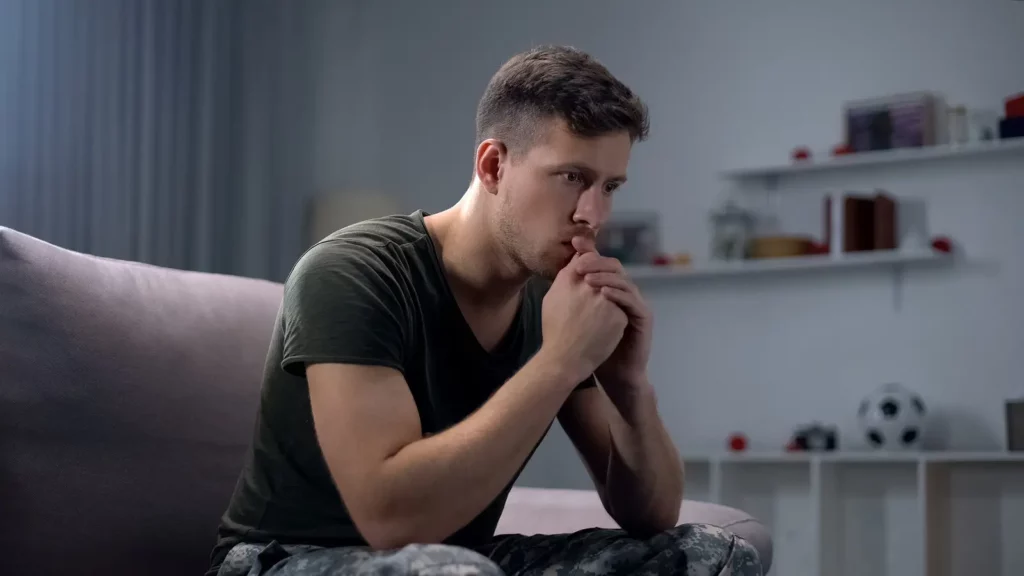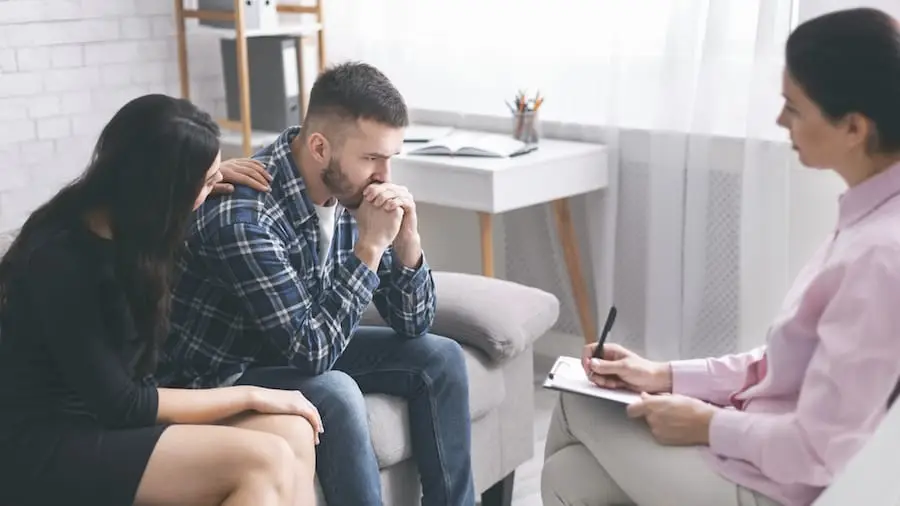PTSD (Post-Traumatic Stress Disorder) can place a significant strain on relationships. As such, seeking out couples therapy can be a valuable step towards healing and understanding. But how do you find the right PTSD couples therapy near you? So let’s find out!
Contents
Why Do You Need To Go For A PTSD Couples Therapy?

The decision to pursue PTSD couples therapy is often motivated by the unique challenges that PTSD presents to a relationship. Here’s why it’s necessary:
- Experience of Trauma: One or both partners have experienced a traumatic event that’s continuing to cause significant distress and intrusive symptoms, characteristic of PTSD.
- Strained Communication: There’s a noticeable strain in communication between partners, potentially due to the symptoms of PTSD.
- Increased Conflict: The relationship is experiencing an increase in conflicts or misunderstandings, which may be a result of PTSD-related symptoms and behaviors.
- Emotional Distance: There’s a growing emotional distance or disconnect in the relationship that might be tied to PTSD-related withdrawal or emotional numbness.
- Disturbed Relationship Dynamics: PTSD is disturbing the dynamics of the relationship, possibly causing an imbalance in roles or leading to codependency.
- Difficulty Managing PTSD Symptoms: The person with PTSD is having a hard time managing symptoms, which is impacting their relationship and overall quality of life.
- Impact on Partner’s Well-being: The partner without PTSD is feeling overwhelmed, helpless, or distressed due to the ongoing impact of PTSD on their loved one and the relationship.
- Lack of Understanding or Empathy: There’s a lack of understanding or empathy towards the partner with PTSD, which is causing further strain on the relationship.
- Desire for Joint Healing: There’s a mutual desire for healing and recovery as a couple, not just as individuals, from the impacts of PTSD.
These reasons, among others, may indicate that PTSD is significantly affecting the relationship, making couples therapy a crucial step towards healing and improvement.
How A Couples Therapy Can Help You With PTSD?
 Couples therapy can be a powerful resource for partners navigating the challenges of PTSD. Here’s how it can help:
Couples therapy can be a powerful resource for partners navigating the challenges of PTSD. Here’s how it can help:
- Understanding PTSD: Couples therapy can help both partners gain a comprehensive understanding of PTSD, its causes, symptoms, and impacts. This understanding can foster empathy and patience within the relationship.
- Improving Communication: Effective communication often becomes a challenge when dealing with PTSD. Therapists can guide couples to develop better communication strategies, promoting understanding and reducing conflict.
- Rebuilding Emotional Intimacy: PTSD can cause emotional withdrawal or numbness, creating a sense of distance in the relationship. Therapy can help couples reconnect emotionally and rebuild intimacy.
- Managing Symptoms: A therapist can provide strategies to help manage PTSD symptoms, reducing their impact on the relationship and the individual’s daily life.
- Resolving Conflicts: By addressing misunderstandings and promoting healthier communication, therapy can help couples resolve conflicts in a constructive manner, improving relationship satisfaction.
- Supporting Each Other: Therapy encourages a supportive environment where partners can learn how to effectively support each other, strengthening their bond and promoting collective healing.
- Preventing Secondary Traumatization: By involving the unaffected partner in therapy, couples can work together to prevent secondary traumatization, a condition where the partner starts mirroring the PTSD symptoms of their loved one.
Through these methods and more, couples therapy can help partners navigate the complexities of PTSD, promoting healing and the strengthening of their relationship.
Tips To Find A Suitable Couples Therapy Near Me
 Now that you are aware of how couples therapy can help with PTSD, you might be questioning, “But how do I find a suitable one near me?” Here are some helpful tips:
Now that you are aware of how couples therapy can help with PTSD, you might be questioning, “But how do I find a suitable one near me?” Here are some helpful tips:
- Identify Your Needs: This includes understanding the kind of therapy approach you might be comfortable with and identifying if you require a therapist with a specialization, such as trauma-focused therapy.
- Use Online Directories: Websites such as Psychology Today have extensive directories of therapists, where you can filter by location, specialty, and type of therapy, making it easier to find one that fits your needs.
- Check Insurance Coverage: Your health insurance provider may cover therapy services and can give you a list of in-network providers near you.
- Ask for Recommendations: Reach out to trusted professionals, like a family doctor or psychiatrist, for recommendations. They might be able to suggest suitable therapists within their network.
- Review Their Qualifications: Look at their educational background, years of experience, and any specialty certifications. A therapist specializing in PTSD and couples therapy might be particularly beneficial for you.
- Initial Consultation: Many therapists offer an initial consultation. This is a great opportunity to ask questions and determine if you feel comfortable with their style and approach.
- Consider Logistics: Apart from their therapeutic approach, also consider practical aspects such as the therapist’s availability, session fees, and the length of each session.
- Listen to Your Gut: At the end of the day, a therapeutic relationship is deeply personal. If you feel comfortable and safe with a therapist, that’s a good sign that they could be the right fit for you.
Remember, the journey to finding the right therapist can take time and patience, but it’s worth the effort to ensure you receive the best possible care.
What Questions Should I Ask A Potential Therapist?
Choosing a therapist is a significant step towards managing PTSD in your relationship. So, here are some key questions to ask a potential therapist to ensure they’re a good fit:
- What is your experience working with PTSD and couples?
- What is your approach to PTSD couples therapy? What are your qualifications and certifications?
- How do you involve both partners in the therapy process?
- How frequent are the sessions, and how long is each session?
- What is the cost per session, and do you accept insurance?
- What is your approach to confidentiality in couples therapy?
- Can you provide any resources for us to learn more about PTSD and its impact on relationships?
Remember, a good therapist will welcome your questions and answer them in a way that makes you feel comfortable and informed. It’s crucial to find someone with whom you can build a strong, trusting relationship.
Conclusion
PTSD can put a significant strain on a relationship, making it feel like an uphill battle for both partners involved. However, Couples therapy can be a vital resource in this process. A skilled therapist can guide you through understanding PTSD and how you can manage its effects.
Finding a suitable therapist may seem daunting initially, but with the right approach and questions, you can find a professional who meets your needs and helps you navigate your path to recovery. In the end, investing in therapy is not just about surviving PTSD—it’s about learning to thrive together, despite the challenges you’ve faced.
Addressing and resolving couple issues is essential for a strong and lasting partnership. So, if you have any queries regarding Online Couple Counseling experienced therapists at CoupleMantra can help. Book a trial couple therapy session.


